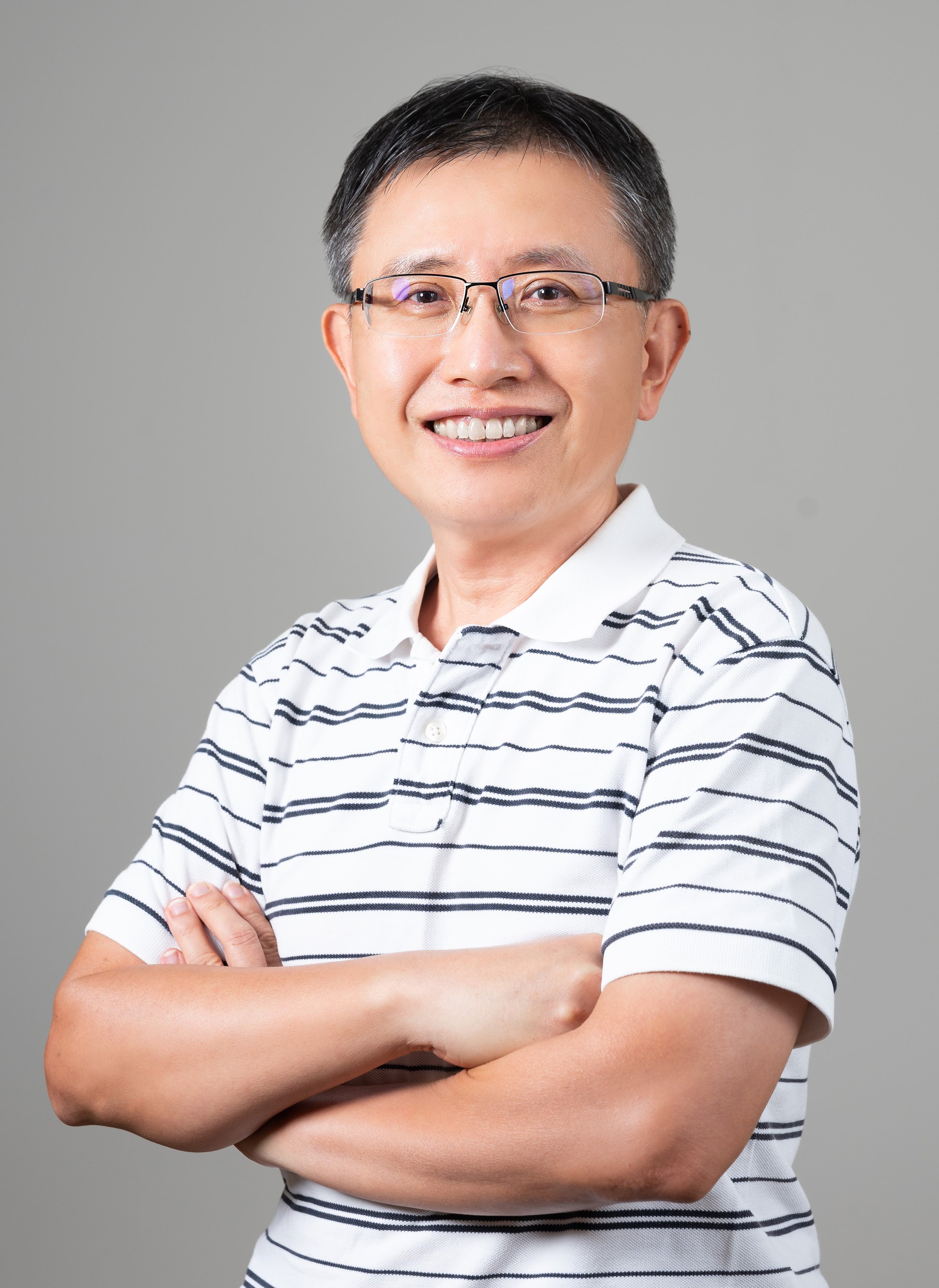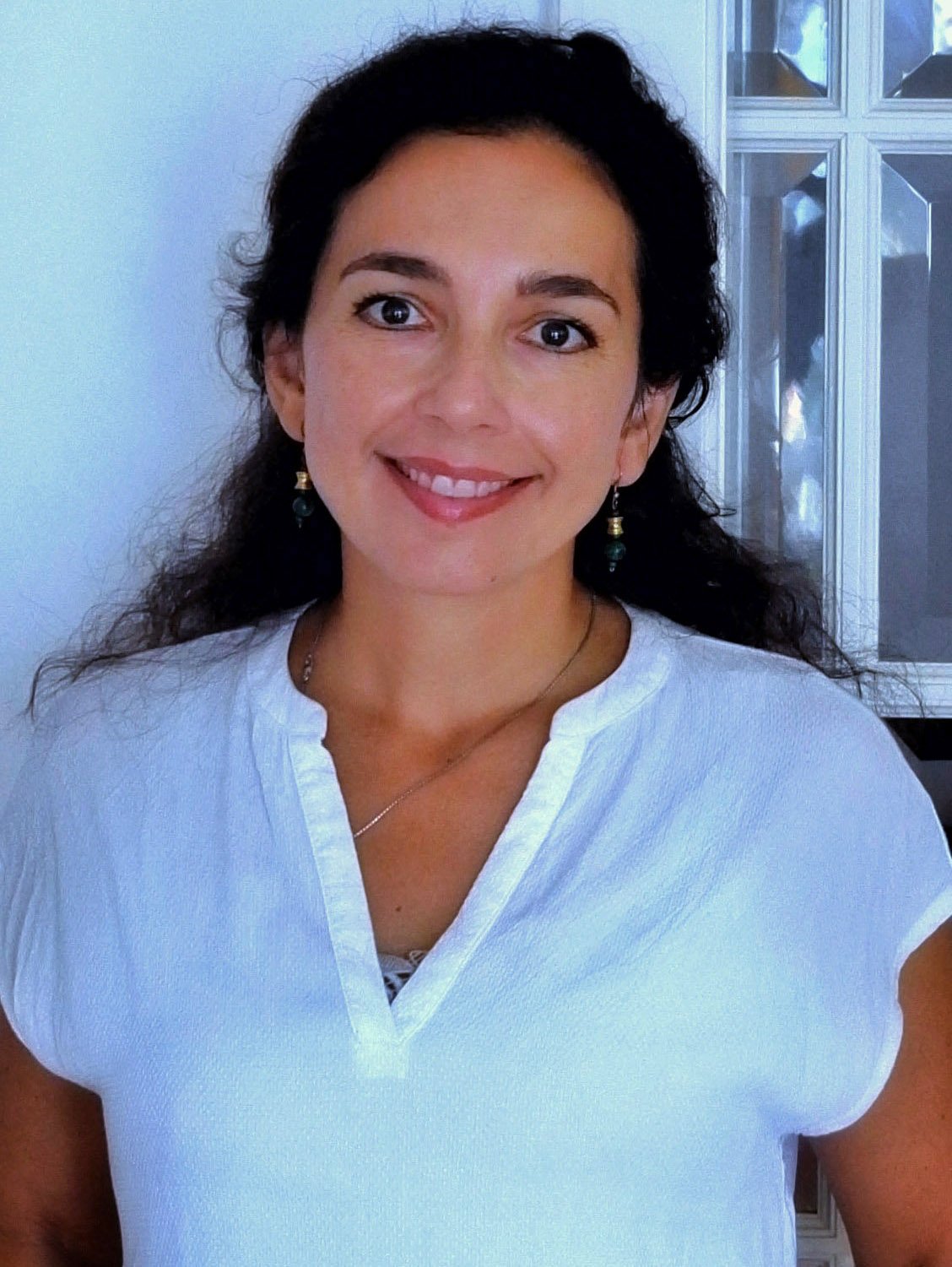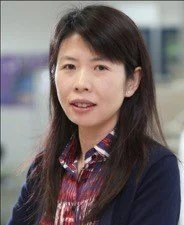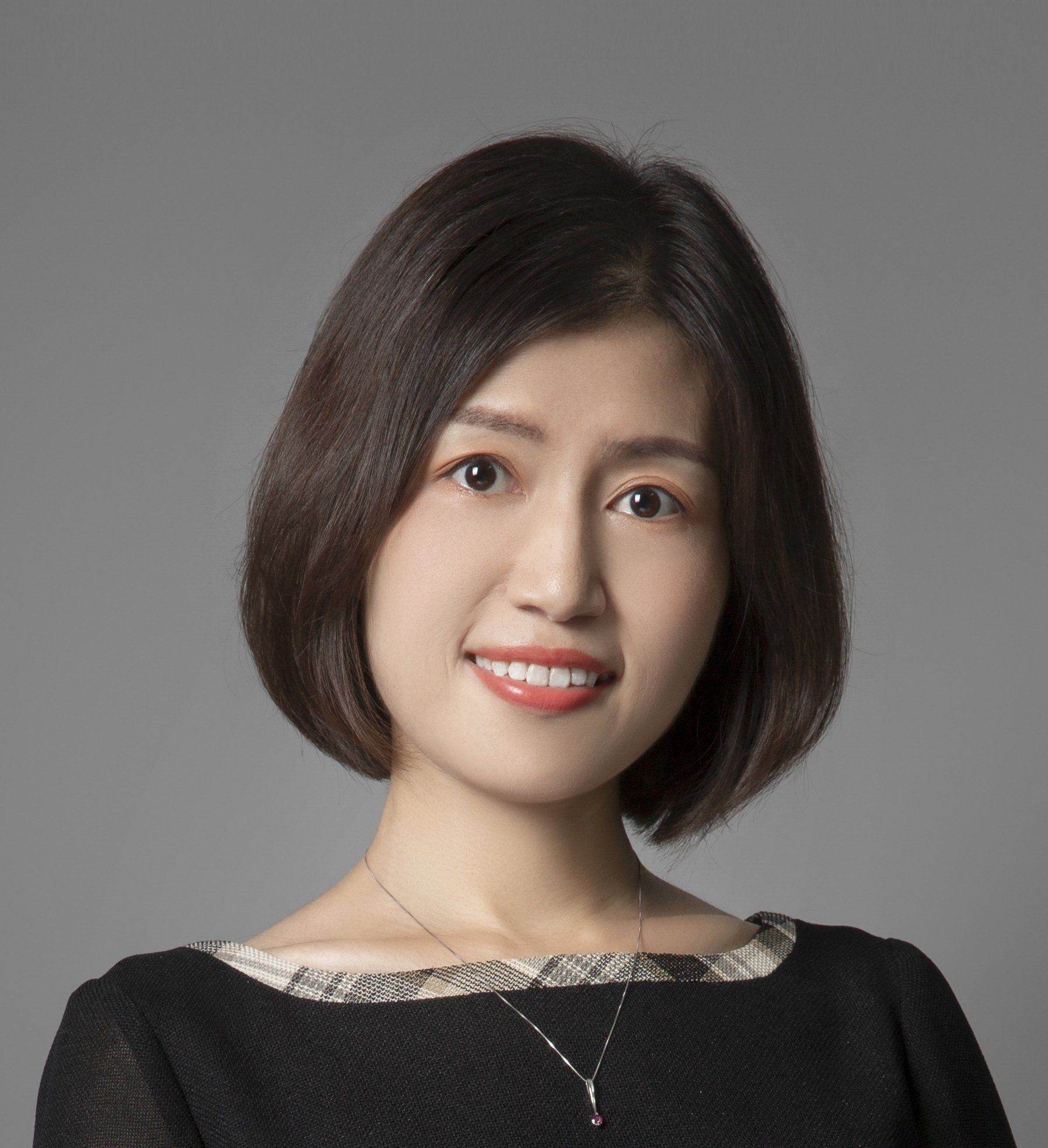INVITED SPEAKERS
-

Prof. Dr. Christian Behrends
LUDWIG-MAXIMILIANS-UNIVERSITY
READ MORE
After hypothesis-driven research on chaperones with Ulrich Hartl at the Max-Planck-Institute of Biochemistry as PhD student and explorative screening on autophagy with Wade Harper at Harvard Medical School in Boston as post-doc, Christian sought to combine these two approaches when he started his own group in 2010 in the Institute of Biochemistry II (IBC2) at the Goethe University in Frankfurt. After setting up proteomics and high-content imaging platforms at IBC2, he focused on exploring cellular components that regulate autophagy or that are subject to autophagosomal degradation. Within this framework, the ubiquitin system gained particular attention. In 2016, Christian joined the Munich Cluster of Systems Neurology (SyNergy) at the Ludwig-Maximilians-University (LMU) as professor where he continued his research on autophagy and ubiquitin.
-

Dr. Guang-Chao Chen
ACADEMIA SINICA & NATIONAL TAIWAN UNIVERSITY
READ MORE
Dr. Chen received his Ph.D. from the University of Texas at Austin and completed postdoctoral training at the MGH Cancer Center, Harvard Medical School. He is currently a Research Fellow at the Institute of Biological Chemistry, Academia Sinica, and Professor at the Institute of Biological Sciences, National Taiwan University. The Chen lab investigates the molecular regulation of autophagy and protein tyrosine phosphatase (PTP) signaling in development and disease. Using Drosophila and mammalian models, the lab has defined key roles for ATG9A in autophagy, stress responses, and gut homeostasis, and uncovered novel functions of autophagy-related deubiquitinating enzymes (DUBs) in development and pathology. The lab also demonstrated tumor-suppressive activities of PTPs in regulating cell proliferation and invasion. These studies have contributed to a deeper understanding of autophagy, ubiquitin signaling, and phosphatase-mediated pathways in tissue homeostasis. Ongoing work focuses on delineating the molecular networks that govern these processes and identifying therapeutic targets in cancer, metabolic syndromes, and neurodegenerative diseases.
-

Prof. Ivan Đikić
THE GOETHE UNIVERSITY
READ MORE
Ivan Đikić is Professor of Biochemistry and Director of the Institute of Biochemistry II at the Goethe University and a Fellow at the Max Planck Institute for Biophysics in Frankfurt.
He is a leading expert in the fields of ubiquitin biology and autophagy with his lab focusing on exploring pathological alterations in these pathways related to human diseases e.g. cancer, infection diseases and neurodegeneration. His recent interests focus on mechanisms of ER remodelling and the discovery of novel proximity-inducing drugs including PROTACs and molecular glues.
He was trained as a medical doctor in Zagreb, Croatia and obtained his PhD under supervision of Joseph Schlessinger at the New York University, USA. Following a successful tenure as a Group Leader at the Ludwig Institute for Cancer Research in Uppsala, Sweden (1997–2002), he joined Goethe University in 2003 and was appointed Director of the Institute of Biochemistry II in 2009. In 2018 he was appointed as Fellow at the Max Planck Institute for Biophysics in Frankfurt.
-

Prof. Zvulun (Zevi) Elazar
WEIZMANN INSTITUTE OF SCIENCE
READ MORE
Zvulun earned his PhD in Neurobiochemistry from the Weizmann Institute of Science. He conducted his postdoctoral research at Princeton University and Memorial Sloan Kettering Cancer Center in the lab of Jim Rothman, where he investigated the formation of COPI vesicles and their role in intra-Golgi transport. Upon returning to the Weizmann Institute as a group leader, Zevi focused on identifying factors involved in vesicle trafficking, particularly on autophagy. He was the first to identify, isolate, and determine the structure of GATE-16, a member of the Atg8 protein family. His lab also provided the first characterization of Atg4A. Through studies on Atg4A regulation, he uncovered a complex connection between autophagy and reactive oxygen species (ROS). Currently, his research centers on autophagosome biogenesis, focusing on how novel functions of the Atg2 and Atg24 complexes regulate the autophagic isolation membrane rim.
-

Assoc Prof. Maho Hamasaki
Osaka University
Read More
Maho Hamasaki is an Associate Professor at the Graduate School of Frontier Biosciences, Osaka University. Her research centers on autophagy, with a particular focus on the molecular mechanisms underlying both general and selective autophagy. She completed her secondary and higher education in Canada and conducted her PhD research in the laboratory of Professor Yoshinori Ohsumi. After earning her doctorate, she continued her work in the field of autophagy, transitioning from yeast to mammalian systems in Dr. Yoshimori’s laboratory. Her contributions have advanced the understanding of cellular quality control and its implications for human health. Hamasaki was recognized as one of Nature Cell Biology’s “Women in Science.”
-

Dr. Congcong He
NORTHWESTERN UNIVERSITY
READ MORE
Dr. Congcong He is an Associate Professor in the Department of Cell and Developmental Biology at Northwestern University Feinberg School of Medicine in Chicago. Her lab studies how the autophagy machinery, such as Beclin/BECN family proteins, regulates metabolism and behaviors in mouse models, and how autophagy mediates exercise-induced benefits against metabolic and neurological diseases including diabetes and neurodegeneration. Dr. He serves as an Associate Editor for the Autophagy journal and a Consulting Editor for JCI Insight. She is a founding member of the Women In Autophagy (WIA) network, and the co-organizer and chair of the inaugural WIA annual symposium in 2020.
-

Prof. James "Jim" Hurley Keynote Speaker
UNIVERSITY OF CALIFORNIA
READ MORE
James ("Jim") Hurley is a professor in the Department of Molecular and Cell Biology at the University of California, Berkeley. He was born in Moscow (the city in Idaho, USA, not Russia), graduated in Physics from San Francisco State University, and obtained his Ph.D. in Biophysics from the University of California, San Francisco. He was a senior investigator in the intramural program of the National Institutes of Health from 1992-2013, and joined the faculty of the University of California, Berkeley in 2013. He has been elected to the U.S. National Academy of Sciences and the American Academy of Arts and Sciences, and has been a team leader in the Aligning Science Across Parkinson's Collaborative Research Network since 2020. Dr. Hurley uses structural biology, biophysics, biochemistry, and cell biology approaches to understand the structure and function of cell membranes in health and disease. He is known for his work on the structure and mechanism of the ESCRT membrane scission machinery, coated vesicle and endosome biogenesis, lipid transporters and second messenger systems, and the autophagy core complexes.
-

Dr. Hui Jiang
NATIONAL INSTITUTE OF BIOLOGICAL SCIENCES
READ MORE
Dr. Hui Jiang received his PhD from Institute of Neuroscience, Chinese Academy of Sciences, and conducted postdoc research with Dr. Xiaodong Wang at UT Southwestern Medical Center at Dallas.
The Jiang lab focus on mitochondrial homeostatic mechanisms and their roles in degenerative and metabolic diseases. Recent findings from the lab discovered a PPTC7-SCFFBXL4 pathway that represses basal mitophagy by degrading the mitophagy receptors BNIP3 and NIX. Dysfunction of this pathway leads to excessive mitophagy, which causes intolerable mitochondrial loss and multi-system degeneration in MTDPS13, a devastating disease caused by FBXL4 mutations. In the meeting, Dr. Jiang will introduce published and unpublished work on the role of BNIP3 and NIX in mitochondrial quantity control and its implications in physiology and diseases.
-

Prof. Masaaki Komatsu
JUNTENDO UNIVERSITY
READ MORE
Dr. Masaaki Komatsu is a professor at Juntendo University, Tokyo, Japan. He received his Ph.D. from Juntendo University and completed his postdoctoral training at the Tokyo Metropolitan Institute of Medical Science. His research focuses on the molecular mechanisms of selective autophagy—particularly p62 body degradation—and ubiquitin-like protein modifications, with an emphasis on the UFM1 system. He has made significant contributions to the understanding of autophagy, including the degradation of phase-separated protein droplets and the physiological roles of autophagy in higher eukaryotes.
-

Prof. Sharad Kumar
UNIVERSITY OF SOUTH AUSTRALIA
READ BIO
Sharad is a Bradley Distinguished Professor at University of South Australia. He co-founded Centre for Cancer Biology (CCB), which he co-directed for 11 years. His research interests include cell death and ubiquitin signalling in health and disease. His laboratory was one of the first to discover mammalian caspases, the NEDD4 E3 ligase family and NEDD8, and now investigates how ubiquitination regulates membrane proteins, autophagy-dependent cell death and the biogenesis of extracellular vesicles. He is a Member of the Order of Australia, holds Fellowships of the Australian Academy of Science and Australian Academy of Health & Medical Sciences, and the 2020 South Australian Scientist of the Year.
-

Assoc. Prof. Erinna Lee
LA TROBE UNIVERSITY
READ MORE
Erinna is a Laboratory Head at La Trobe University (LTU) in the Department of Biochemistry and Chemistry, and a Visiting Scientist at the Olivia Newton-John Cancer Research Institute. She also holds leadership roles as the Understanding and Preventing Disease Theme Lead at LTU and Cancer Theme Lead at the La Trobe Institute for Molecular Science (LIMS).
During her PhD, under the supervision of Prof. Peter Colman and Assoc. Prof. Douglas Fairlie in the Structural Biology Division at WEHI, Erinna mapped the molecular determinants governing the protein interactions between BCL-2 family members using structural and biochemical approaches. Notably, this was prior to the advent of BH3-mimetics and her results led to the design of highly selective pro-survival protein binders. These were invaluable for the profiling of different cancer types for their survival factors and contributed to the tripartite collaboration between WEHI, AbbVie and Genentech to develop BH3-mimetics.
She continued her postdoctoral studies at WEHI and during this time, applied her biochemical understanding of BCL-2 protein interactions to generate mouse models that advanced our understanding of the mechanisms by which pro-survival proteins conferred their survival function - a controversial topic that dominated that era of apoptosis research. In addition, together with her long-term collaborator, Douglas Fairlie, they discovered BCL-2 proteins in parasitic organisms, opening up the potential use of BH3-mimetics for the treatment of parasitic disease. This led to a medicinal chemistry discovery program with collaborators at WEHI.
Since moving to LTU/LIMS/ONJCRI in 2015, she continues her quest to identify new treatment strategies based on BH3-mimetics therapy for aggressive and incurable solid cancers. In addition, Erinna has embarked on a research program looking at the brighter side of life investigating the role of the cell survival pathway of autophagy in normal physiology and disease. This program originally started due to the crosstalk between apoptosis and autophagy mediated by the interaction between Beclin 1 and the BCL-2 proteins. Through the establishment of novel mouse models, her recent findings have revealed important roles for key autophagy regulators in intestinal homeostasis regulation and diseases such as inflammatory bowel disease (IBD).
-

Prof. Sascha Martens
UNIVERSITY OF VIENNA
READ MORE
Sascha Martens earned his PhD in Genetics from the University of Cologne before completing postdoctoral training at the MRC Laboratory of Molecular Biology in Cambridge. Since 2009, he has led a research group at the Max Perutz Labs in Vienna, where is now a Full Professor. His lab focusses on selective autophagy. He reconstituted much of the core autophagy machinery and uncovered how autophagosome formation is coupled to cargo recognition. He also discovered that cargo receptors condense ubiquitinated proteins for autophagic degradation—a process that fails for pathological protein aggregates.
-

Dr. Meagan McGrath
MONASH UNIVERSITY
READ MORE
Meagan McGrath is a group leader at the at the Biomedicine Discovery Institute, Monash University, Australia. Her research focuses on skeletal muscle biology, broadly spanning from inherited skeletal muscle disorders called muscular dystrophies and myopathies, as well as muscle metabolism. She is a co-founder of ADAPT-CMD, a clinical and research partnership funded by the Medical Research Futures Fund, aimed at developing a functional genetics platform for advancing personalized treatment of congenital muscle disease – leading the autophagy pipeline of this platform. With specialist expertise bridging both phosphoinositides and autophagy, she also led discoveries identifying the physiological role of the phosphoinositide driven process called autophagic lysosome reformation (ALR). She was the first to identify that ALR is essential to maintain lysosome homeostasis in skeletal muscle, the failure of which causes congenital muscular dystrophy. More recently she has defined an unexpected new role for ALR in whole-body metabolic flexibility and obesity resistance that is independent of the current FGF21 metabolic paradigm.
-

Prof. Noboru Mizushima
THE UNIVERSITY OF TOKYO
READ MORE
Noboru Mizushima has studied intracellular degradation systems, focusing on autophagy and related pathways, for 28 years since joining Dr. Yoshinori Ohsumi’s lab in 1997. His group has identified key molecules involved in autophagy, developed monitoring methods, and uncovered the pathophysiological roles of autophagy and other degradation pathways in vertebrates. He received the Medal with Purple Ribbon of Japan in 2021 and the inaugural Beth Levine Prize in Autophagy Research in 2023. He is a former President of the Japanese Biochemical Society and currently serves as the President of the Japan Society for Cell Biology.
-

Assoc Prof. Vassiliki Nikoletopoulou
UNIVERSITY OF LAUSANNE
READ MORE
Vassiliki obtained her Ph.D. in Neurosciences from the University of Basel, in the lab of Yves-Alain Barde, studying instructive functions of neurotrophin receptors during CNS and PNS development. She then joined the lab of Nektarios Tavernarakis at the IMBB in Greece, where she investigated conserved cellular mechanisms of stress-response and hormesis in neurons, combining C. elegans and mouse genetics. Funded by a Marie-Curie career restart grant, she studied the regulation of autophagy in the mammalian brain and in 2017 she established her lab with an ERC starting grant. She joined the DNF in 2019, where she's currently an Associate Professor.
-

Dr. Julia Pagan
THE UNIVERSITY OF QUEENSLAND
Read More
Julia Pagan completed her post-doctoral training at New York University Langone Medical Center under the mentorship of Professor Michele Pagano, where she investigated how cullin-RING ligases (particularly SCF/CRL1 complexes) regulate cell growth and proliferation through selective substrate degradation. Now based at the University of Queensland, her research focuses on understanding how ubiquitin ligases regulate mitochondrial quality control, with a particular emphasis on mitophagy. Using a combination of proteomics, biochemistry, and cell biology, her team investigates how specific E3 ligase components identify and target their substrates to coordinate mitochondrial turnover. Her work examines how disrupted ubiquitin signalling at mitochondria, centrosomes, and microtubules contributes to cancer, neurodegeneration, and mitochondrial disease.
-

Assoc Prof. Nathan Pavlos
THE UNIVERSITY OF WESTERN AUSTRALIA
READ MORE
Associate Professor Nathan Pavlos is Head of the Bone Biology & Disease Laboratory and Chair of Research within the School of Biomedical Sciences at the University of Western Australia (UWA). He completed his PhD at UWA and later undertook postdoctoral training at the Max-Planck-Institute for Biophysical Chemistry, Germany (Reinhard Jahn Laboratory) as a National Heath & Medical Research Council CJ Martin (Biomedical) Overseas Research Fellow where he worked on the molecular regulation of synaptic vesicle exo-endocytosis and autophagy in neurons. In 2010, Dr Pavlos established his independent NHMRC funded research program at UWA focused the regulation of endo-lysosomal membrane trafficking and transport in the context of bone-digesting osteoclasts. Dr Pavlos combines organelle-level proteomics together with genetically modified mouse models and cell biology approaches to dissect the pathobiology of bone diseases. Dr Pavlos was elected a Fellow of the American Society for Bone and Mineral Research (2020) and Fellow of International Orthopaedic Research (2022).
-

Dr. Rushika Perera
UNIVERSITY OF CALIFORNIA
READ MORE
Rushika M. Perera PhD is the Deborah Cowan Endowed Associate Professor in the School of Medicine and the Vice Chair of the Dept. of Anatomy at the University of California, San Francisco. She also holds appointments in the Dept. of Pathology and the Helen Diller Family Comprehensive Cancer Center and is the Chief Scientific Officer of the UCSF Pancreas Center.
Dr. Perera received her PhD from the University of Melbourne in Australia and trained at Yale University and the Massachusetts General Hospital and Harvard Medical School in Boston before joining the faculty at UCSF in 2015.
Research in the Perera lab focuses on understanding how fundamental cell biological processes that regulate metabolism, protein trafficking and quality control are dysregulated in pancreatic cancer, with the aim of identifying new cancer specific vulnerabilities that can be targeted clinically.
-

Prof. David Rubinsztein
UNIVERSITY OF CAMBRIDGE
READ MORE
David Rubinsztein is Professor of Molecular Neurogenetics and a UK Dementia Research Institute Group Leader at the University of Cambridge. His laboratory is based in the Cambridge Institute for Medical Research. Dr. Rubinsztein earned his medical and PhD degrees from University of Cape Town. He came to Cambridge in 1993 as a Senior Registrar in genetic pathology and was the first person to complete formal training in this field in the UK. His research is focused on autophagy, particularly in the context of neurodegenerative diseases. Rubinsztein was elected Fellow of the Academy of Medical Sciences, EMBO member, and Fellow of the Royal Society.
-

Assoc Prof. Timothy Sargeant
SOUTH AUSTRALIAN HEALTH AND MEDICAL RESEARCH INSTITUTE
READ MORE
Associate Professor Timothy Sargeant leads the Lysosomal Health in Ageing laboratory at SAHMRI. A cell biologist by training, his research focuses on how cells recycle their contents, with particular interest in measuring autophagy in humans. His team is developing direct measures of autophagic flux, identifying autophagy biomarkers, and exploring nutritional strategies to augment autophagy in people. His work bridges discovery science and clinical translation to better understand how autophagy can delay the onset of age-related diseases such as dementia and heart disease. This research has received NHMRC funding and led to multiple patent applications.
-

Prof. Anne Simonsen
The EMBO Keynote Lecture
OSLO UNIVERSITY HOSPITAL
READ MORE
Professor Anne Simonsen leads the Autophagy research group at the Institute for Cancer Research, Oslo University Hospital, and is the co-director of the Centre of Excellence CanCell (Centre for Cancer Cell Reprogramming) at the University of Oslo, Norway. She started her laboratory at the University of Oslo in 2009, where she became a full professor in 2011. The main objective of the Simonsen laboratory is to unravel the molecular mechanisms involved in selective types of autophagy and their role in normal health and disease. Specific focus areas include characterization of the role of hypoxia-induced mitophagy in cancer development and protein aggregate clearance in neurodegenerative disease. Her lab also has a continued interest in ALFY and other BEACH-domain-containing proteins. They use mammalian cell lines, various in vitro approaches, and zebrafish for their discoveries. She has authored more than 120 papers and has an H-index of 66. She is a member of the Norwegian Academy of Sciences and an elected member of EMBO.
-

Dr. Alexandra Stolz
BUCHMANN INSTITUTE FOR MOLECULAR LIFE SCIENCES
READ MORE
Alexandra Stolz studied Biochemistry in Regensburg, Germany followed by a PhD in yeast genetics and molecular biology in Stuttgart, Germany. After a postdoc (2012-2013) working on ER associated protein degradation (ERAD) – a proteasome dependent pathway, Alexandra joined the groups of Andreas Ernst and Ivan Dikic at IBC2 in Frankfurt, Germany (2013-2016) to work on autophagy. Besides contributing to the characterization of the first autophagy receptor for ER-phagy FAM134B and elaborating the role of the kinase TBK1 in mitophagy, she utilized phage display and protein engineering to develop fluorescent sensors for the central autophagy components LC3/GABARAPs. In January 2017, she joined Genentech in South San Francisco, USA as a visiting scientist where she studied the impact of oncogene-induced secretion during cancer pathogenesis. Since February 2018, Alexandra is heading the phenotypic screening platform of the Frankfurt Competence Center of Emerging Therapeutics (FCET) and since January 2021 as well the ER quality control group located at the Buchman Institute for Molecular Life Sciences (BMLS) as an indipendent group leader. Alexandra is associated with EUbOPEN, where her group aims to identify chemical inducers and inhibitors of selective autophagy pathways.
-

Dr. Sharon Tooze
THE FRANCIS CRICK INSTITUTE
READ MORE
Sharon A. Tooze has a long-standing interest in molecular cell biology, starting with her PhD work at the European Molecular Biology Laboratory (EMBL) in Heidelberg, Germany. Her work at EMBL during her PhD and post-doc helped define the current view of how post-Golgi vesicular pathways are initiated. Sharon maintained her interest in the biogenesis of organelles when she moved to the London Research Institute (now the Francis Crick Institute), and in 2006 began work on the biogenesis of autophagosomes.
Since then, at the Francis Crick Institute, she has contributed to the current knowledge of the function of the mammalian autophagy (ATG) proteins she first identified, including ULK1/2, ATG9A/B, and WIPI2, and non-ATG trafficking proteins regulating autophagosome formation and an understanding of the initiation of autophagy at the molecular level.
Sharon was elected to EMBO in 2010, AcademiaNet Fellow 2014, Fellow of the Academy of Medicine 2018, European Academy of Sciences 2020, and to the Academia Europaea in 2024.
-

Dr. Richard Youle
NATIONAL INSTITUTE OF NEUROLOGICAL DISORDERS AND STROKE
Read More
Richard Youle is a Distinguished Investigator and head of the Biochemistry Section at the National Institute of Neurological Disorders and Stroke (NINDS) of the National Institutes of Health (NIH) in Bethesda, Maryland. Youle graduated from Albion College with a bachelor's degree and received his doctorate in biology from the University of South Carolina where he worked on the protein toxin ricin. He has more recently discovered regulatory mechanisms in the areas of apoptosis and autophagy. In 2021 he received the Breakthrough Prize in Life Sciences for elucidating a quality control pathway that eliminates damaged mitochondria and thereby protects against Parkinson's disease.
-

Prof. Xiaochen Wang
SOUTHERN UNIVERSITY OF SCIENCE AND TECHNOLOGY
Read More
Xiaochen Wang is a chair professor at Southern University of Science and Technology
(SUSTech, Shenzhen, Guangdong, China). Wang lab studies regulation and function of lysosomes using C. elegans as a multicellular model organism. By combinatory approaches of genetics, cell biology, and biochemistry, Wang lab has identified genes important for maintaining lysosome morphology, dynamics, degradation activity, and membrane integrity, and has revealed essential roles of lysosomes in development and longevity.
-

Assoc Prof. Yan Zhao
SOUTHERN UNIVERSITY OF SCIENCE AND TECHNOLOGY
READ MORE
Yan Zhao is an Associate Professor in the Department of Neuroscience at Southern University of Science and Technology. She received her BS and PhD from the School of Public Heath in Peking University Health Science Center. She then conducted postdoctoral research at the Institute of Biophysics, Chinese Academy of Sciences, and UMass Medical School. In 2020, she established her own lab, and her group is dedicated to studying the intricate mechanisms of neural autophagy and its regulation and function within the central nervous system, using a combination of cell biology, biochemistry, and mouse genetics approaches.
-

Dr. Hong Zhang
CHINESE ACADEMY OF SCIENCES
READ MORE
Dr. Hong Zhang is a New Cornerstone Investigator, and also an Investigator in the Institute of Biophysics, Chinese Academy of Sciences. Zhang’s lab demonstrated that during C. elegans embryogenesis, specialized protein aggregates, called PGL granules, are removed by autophagy in somatic cells. Using this as a model, his lab identified a set of metazoan-specific autophagy genes, called Epg genes. His lab further revealed that Epg genes act at steps unique to the autophagy pathway in multicellular organisms. Currently, the research in Zhang’s lab focuses on the role of dynamic Ca2+ signals in various aspects of autophagy, including execution and regulation of autophagy and also degradation of protein aggregates. Dr. Hong Zhang is an Associate Editor for Autophagy, a Senior Academic Editor for Journal of Cell Biology, and is also on the Editorial Board for Developmental Cell, Cell Chemical Biology, Trends in Biochemical Sciences and EMBO reports.
-
Erika Holzbaur
University of Pennsylvania

